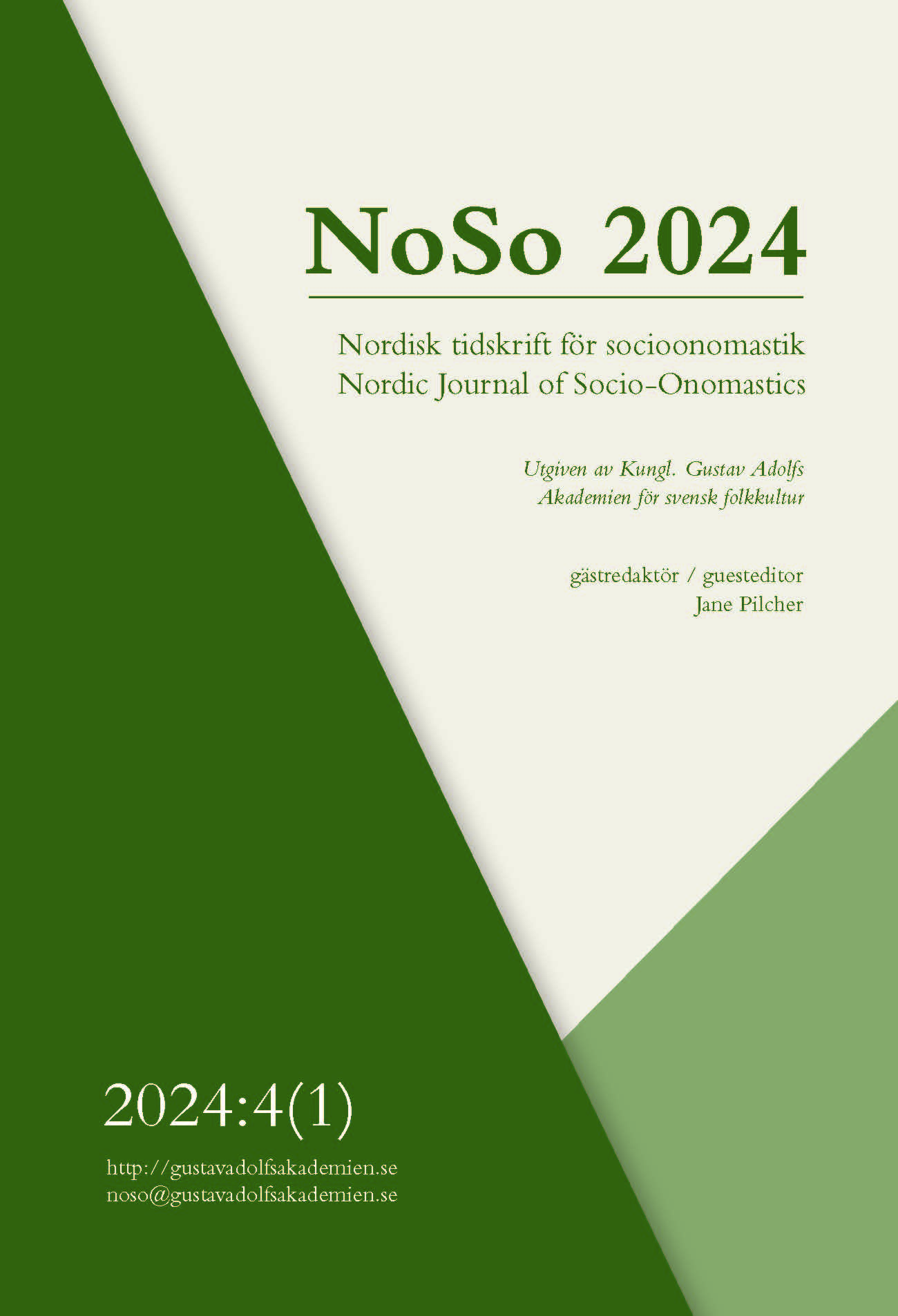Name changing and gender
An analysis of name changes made in the United Kingdom via enrolled deed polls, 1998–2019
DOI:
https://doi.org/10.59589/noso.42024.16876Keywords:
name change, gender, United Kingdom, enrolled deed polls, name change trendsAbstract
Name changing is an under-researched topic in socio-onomastics. In this article, we extend knowledge of and understanding about gender and name changing by analysing ‘enrolled deed polls’, which people in the United Kingdom can use to change any part or all parts of their names. We examine which names are changed in relation to gender, including those we linked to transitions in gender identity. Our quantitative analyses of 10 665 enrolled deed polls for the period 1998–2019 shows that, over time, women have replaced men as the majority of applicants for name change and that, compared to men, women are more likely to make ‘surname only’ changes to their name. Among men applicants, there was an increase over time in changes made to first and middle names (a doubled figure in 2019 compared to 1998). Although case numbers are small, of the name changes we attributed to gender transition, the majority were changes made to the applicant’s first name and/or middle name. Our article concludes by reflecting on what our analysis of otherwise unexamined records of enrolled deed polls reveals about the (re)doing of gender identities through name changing in contemporary societies.
Published
How to Cite
Issue
Section
License
Copyright (c) 2024 Jane Pilcher, Hannah Deakin-Smith, Emilia Aldrin, Hanh Thi My Nguyen

This work is licensed under a Creative Commons Attribution 4.0 International License.






